Common Mistakes in DEF Production
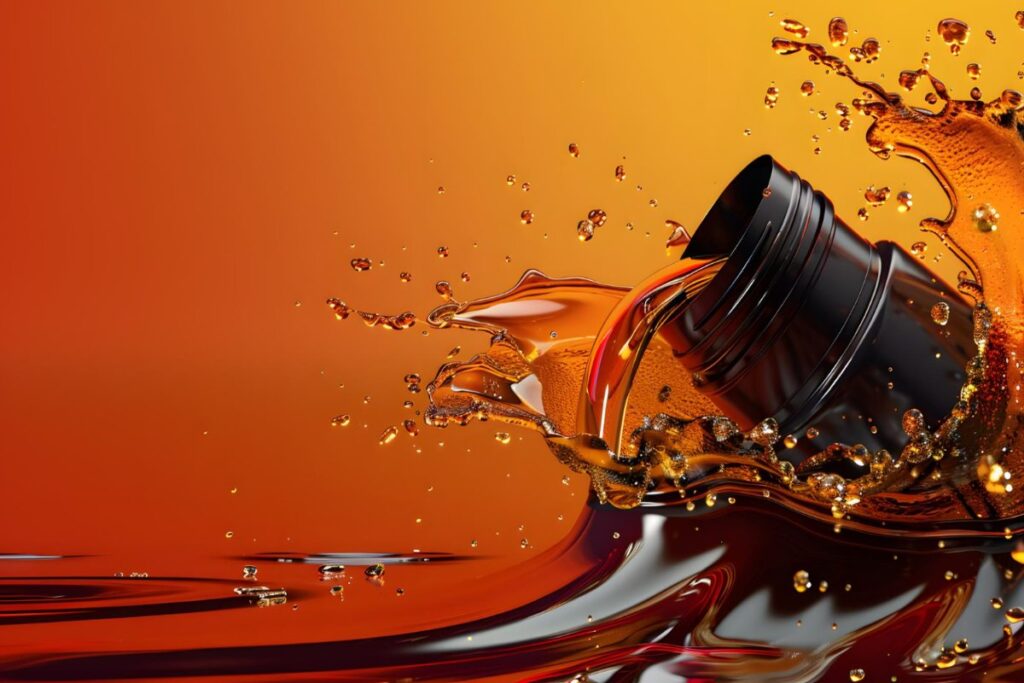
Introduction to DEF Production Errors Ensuring high-quality DEF Production is essential for maintaining efficiency in diesel engines and reducing emissions. However, mistakes in production can lead to contamination, inefficiency, and non-compliance with industry regulations. Understanding these common errors can help manufacturers optimize their production process. Incorrect Urea Concentration One of the most frequent mistakes in DEF Production is an improper urea-to-water ratio. DEF must contain exactly 32.5% high-purity urea and 67.5% deionized water. Any deviation from this ratio can lead to inefficiencies in selective catalytic reduction (SCR) systems, reducing the fluid’s effectiveness in minimizing nitrogen oxide emissions. Using Contaminated Water Deionized water is a critical component in DEF Production. If non-deionized or impure water is used, it can introduce contaminants such as minerals and chemicals, which can lead to SCR system clogging and reduced efficiency. Using high-quality filtration and deionization processes ensures DEF purity and prevents potential engine damage. Poor Mixing and Blending Techniques Achieving a homogeneous mixture is vital in DEF Production. Inadequate mixing can result in concentration inconsistencies, leading to ineffective emission control. Advanced automated mixing systems help maintain the proper urea distribution, preventing precipitation and ensuring high-quality DEF. Insufficient Filtration Filtration is essential to remove impurities and ensure DEF meets ISO 22241 standards. Failing to implement a multi-stage filtration process can result in unwanted particles entering the final product, which may cause damage to SCR systems and lead to costly repairs. Improper Storage Conditions Storage conditions greatly impact the stability and effectiveness of DEF Production. DEF should be stored in temperature-controlled, non-reactive containers. Exposure to extreme heat or cold can cause chemical degradation or crystallization, reducing its efficiency in diesel engines. Handling and Transportation Mistakes Improper handling during transportation can lead to contamination or degradation. DEF should be transported in dedicated, sealed containers that prevent exposure to airborne contaminants and moisture. Cross-contamination with other fluids or residues from previous shipments can compromise DEF quality. Lack of Quality Testing Manufacturers must conduct rigorous quality control testing at every stage of DEF Production. Failure to perform regular laboratory tests on urea concentration, purity, and contamination levels can lead to substandard DEF that does not meet regulatory requirements. Conclusion Avoiding common mistakes in DEF Production ensures the production of high-quality DEF that meets industry standards. By maintaining strict quality control, using proper raw materials, and ensuring correct storage and transportation, manufacturers can prevent costly errors and improve DEF efficiency in reducing emissions. FAQ What happens if the urea concentration in DEF is incorrect? Improper concentration reduces DEF effectiveness in SCR systems, leading to increased emissions. Why is deionized water important in DEF Production? It prevents contaminants from affecting SCR systems and ensures DEF purity. What are the consequences of poor mixing in DEF Production? Poor mixing can cause uneven distribution of urea, reducing DEF’s efficiency in reducing emissions. How does improper filtration affect DEF? Unfiltered particles can clog SCR systems, leading to vehicle performance issues. What is the ideal storage temperature for DEF? Between 12°F (-11°C) and 86°F (30°C) to prevent degradation or crystallization. How can DEF be transported safely? Using sealed, dedicated containers to prevent contamination and maintain quality. Why is quality testing essential in DEF Production? It ensures that DEF meets ISO 22241 standards and maintains effectiveness in emission reduction. What contaminants can affect DEF quality? Calcium, magnesium, and other minerals can compromise SCR system functionality. How can DEF contamination be prevented? By using high-purity raw materials, proper storage, and controlled transportation methods. What are the financial impacts of poor DEF Production? Substandard DEF can lead to vehicle repairs, increased emissions, and regulatory penalties.
Factors That Enhance DEF Production Quality
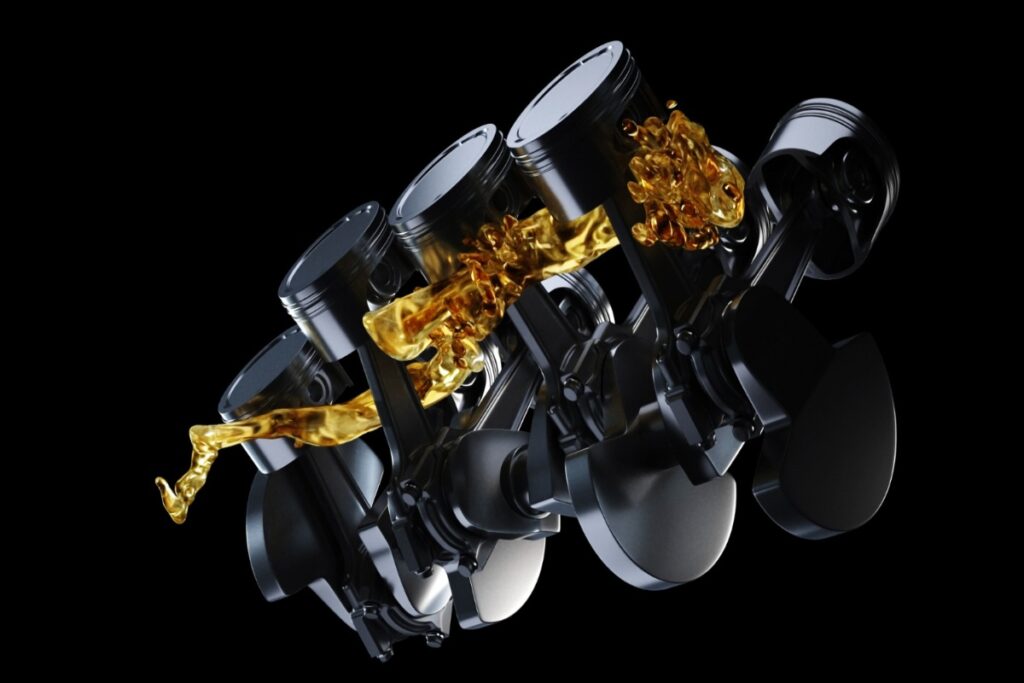
Introduction to DEF Production Quality High-quality DEF Production is essential for ensuring the effectiveness of selective catalytic reduction (SCR) systems in reducing nitrogen oxide (NOx) emissions. Several factors contribute to the production of premium-grade DEF, from the selection of raw materials to the precision of blending, filtration, and storage techniques. Optimal Urea Concentration The correct urea concentration is fundamental to effective DEF Production. DEF must contain precisely 32.5% high-purity urea and 67.5% deionized water. Maintaining this balance ensures efficient NOx conversion and compliance with ISO 22241 standards. High-Purity Deionized Water Using deionized water free of minerals and contaminants is crucial in DEF Production. Impurities such as calcium and magnesium can cause deposits in SCR systems, reducing efficiency and increasing maintenance costs. Advanced deionization processes help maintain the necessary purity levels. Precision Mixing and Blending Proper mixing and blending ensure the uniform distribution of urea in the water solution. Automated blending systems help eliminate inconsistencies, preventing crystallization and sediment formation. These systems maintain uniformity in every batch, contributing to better DEF quality. Multi-Stage Filtration Process Filtration plays a crucial role in enhancing DEF Production. A multi-stage filtration process removes particulates and potential contaminants before packaging. This process helps maintain DEF purity, ensuring smooth operation of SCR systems in diesel engines. Controlled Storage Conditions Storage conditions significantly impact DEF stability and performance. Proper storage involves maintaining temperatures between 12°F (-11°C) and 86°F (30°C) to prevent degradation or crystallization. Using non-reactive, sealed containers prevents contamination and preserves the integrity of DEF. Efficient Handling and Transportation DEF must be handled and transported using dedicated equipment to prevent contamination. Specialized stainless-steel or high-density polyethylene containers are used to maintain purity. Strict adherence to transportation guidelines helps ensure DEF reaches end-users in optimal condition. Strict Quality Control and Compliance Continuous quality testing is essential to maintain high standards in DEF Production. Regular laboratory testing for urea concentration, water purity, and contaminants ensures compliance with regulatory standards such as ISO 22241 and EPA guidelines. Conclusion Enhancing DEF Production quality requires attention to multiple factors, including raw material purity, precision blending, filtration, and proper storage. By following best practices, manufacturers can ensure the production of high-quality DEF that supports efficient NOx reduction and engine performance. FAQ Why is urea concentration important in DEF? Maintaining 32.5% urea concentration ensures optimal SCR system efficiency and NOx reduction. How does deionized water improve DEF quality? Deionized water prevents mineral contamination, reducing the risk of deposits in SCR systems. What role does mixing play in DEF Production? Proper mixing ensures a homogeneous solution, preventing crystallization and performance issues. Why is filtration necessary in DEF Production? Filtration removes impurities that could clog SCR systems and compromise DEF effectiveness. What are the ideal storage conditions for DEF? DEF should be stored in temperature-controlled, sealed containers to maintain its stability. How should DEF be transported to prevent contamination? Using dedicated, sealed stainless-steel or high-density polyethylene containers prevents contamination. How often should DEF be tested for quality assurance? Regular laboratory testing ensures compliance with ISO 22241 and EPA standards. Can improper DEF storage affect engine performance? Yes, exposure to extreme temperatures can degrade DEF quality, affecting SCR efficiency. What contaminants should be avoided in DEF? Calcium, magnesium, and other minerals can negatively impact SCR system performance. Why is compliance with ISO 22241 important in DEF Production? It ensures DEF meets industry standards for purity and effectiveness in emissions reduction.
The Role of Technology in DEF Production
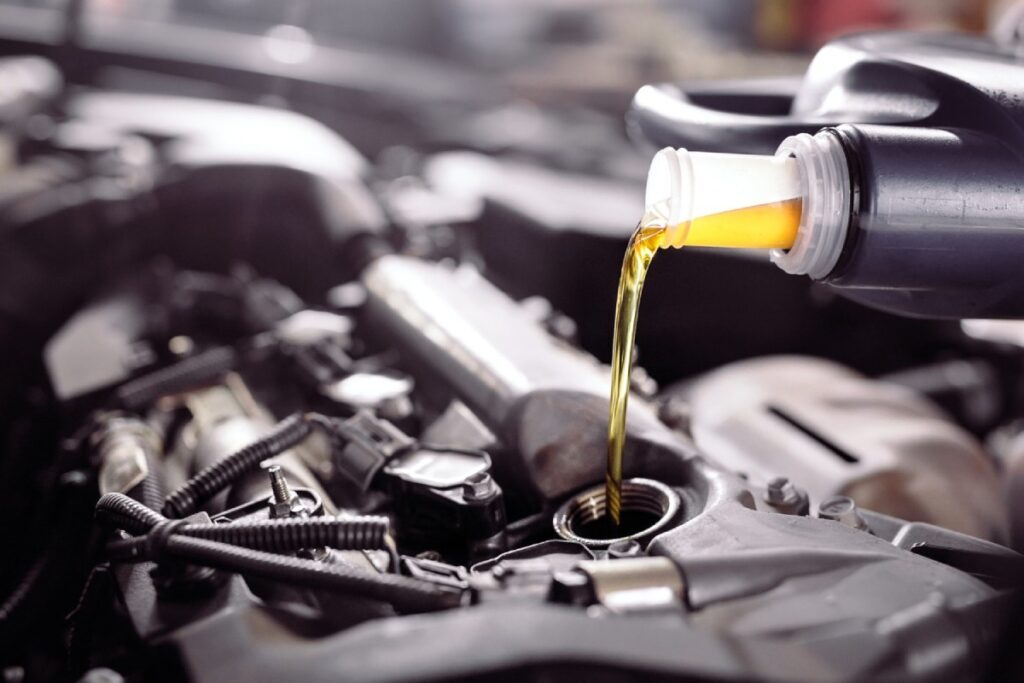
Introduction to Technology in DEF Production Technology plays a crucial role in ensuring high-quality DEF Production. From automated blending systems to advanced quality control measures, innovations in production processes help improve efficiency, consistency, and compliance with industry standards. As emission regulations become stricter, the demand for advanced DEF production technology is growing to ensure environmental compliance and operational efficiency. Automation in Blending and Mixing Modern DEF Production facilities use automated blending systems to ensure precise urea-to-water ratios. These systems eliminate human error and enhance uniformity in production, maintaining the required 32.5% urea concentration for optimal performance in SCR systems. Automated mixing systems also reduce production time and increase batch consistency, ensuring that every product meets the required quality standards. Advanced Filtration Systems Filtration technology ensures that DEF Production remains free from impurities that could damage diesel engines. Multi-stage filtration units remove particulates and contaminants, guaranteeing compliance with ISO 22241 standards. Without effective filtration, DEF can introduce unwanted particles into the vehicle’s SCR system, leading to potential malfunctions and increased maintenance costs. Real-Time Quality Monitoring With the integration of digital sensors and real-time monitoring, manufacturers can continuously track and adjust the quality of DEF Production. These technologies detect inconsistencies early, preventing production of subpar DEF. Smart monitoring systems help ensure that DEF meets required quality parameters before it reaches end users, reducing the risk of performance issues. Efficient Storage and Distribution Solutions Technology aids in maintaining ideal storage conditions for DEF Production. Temperature-controlled storage tanks and IoT-based monitoring systems help prevent crystallization and contamination, ensuring long-term stability. Advanced logistics systems ensure that DEF is transported under optimal conditions, preserving its integrity and effectiveness. Enhanced Transportation Safety Smart logistics systems and GPS tracking ensure safe and efficient distribution of DEF Production. Dedicated transport containers equipped with monitoring sensors help maintain DEF purity throughout the supply chain. Advanced tracking mechanisms allow manufacturers and distributors to monitor real-time conditions, reducing contamination risks during transport. AI and Predictive Maintenance Artificial intelligence is increasingly used in DEF Production facilities to predict maintenance needs and reduce downtime. AI-driven analytics help optimize production efficiency and prevent equipment failures. By analyzing production trends and machine performance, AI can recommend proactive maintenance, reducing the likelihood of unexpected production halts. Robotics in DEF Manufacturing Robotics plays a significant role in modern DEF Production, automating repetitive tasks such as packaging, labeling, and quality checks. Robotic systems help streamline the manufacturing process, reducing labor costs while increasing production accuracy and speed. The use of robotic systems minimizes human intervention, decreasing the risk of contamination and improving overall safety. Big Data and Process Optimization Big data analytics help optimize DEF Production by analyzing trends, equipment performance, and raw material quality. By leveraging data-driven insights, manufacturers can fine-tune their production strategies, minimize waste, and maximize efficiency. The ability to process large volumes of data allows companies to make informed decisions and continuously improve their operations. Conclusion Technology significantly enhances DEF Production by improving accuracy, efficiency, and quality control. Innovations in automation, filtration, real-time monitoring, AI-driven analytics, and robotics ensure a stable and high-quality product for the diesel industry. As environmental regulations become more stringent, continued technological advancements will play a crucial role in meeting industry demands while ensuring cost-effective production. FAQ How does automation improve DEF Production? Automation ensures precise urea concentration, reduces human errors, and increases batch consistency. Why is filtration important in DEF Production? Filtration removes impurities that could damage SCR systems in diesel engines. What role does AI play in DEF Production? AI predicts maintenance needs, optimizes production efficiency, and reduces downtime. How does technology ensure DEF quality? Real-time monitoring and digital sensors detect inconsistencies before distribution. What are the benefits of smart storage solutions? Temperature-controlled tanks prevent crystallization and contamination. How does technology improve DEF transportation? GPS tracking and sensor-equipped containers maintain DEF purity in transit. What standards must DEF Production meet? DEF must comply with ISO 22241 standards for purity and efficiency. How does predictive maintenance benefit DEF facilities? It reduces downtime and prevents unexpected equipment failures. Can technology reduce DEF Production costs? Yes, automation and AI-driven processes enhance efficiency and reduce waste. What is the future of technology in DEF Production? Innovations like IoT monitoring, big data analytics, and advanced robotics will continue to optimize production.
Ensuring Quality in AdBlue Production
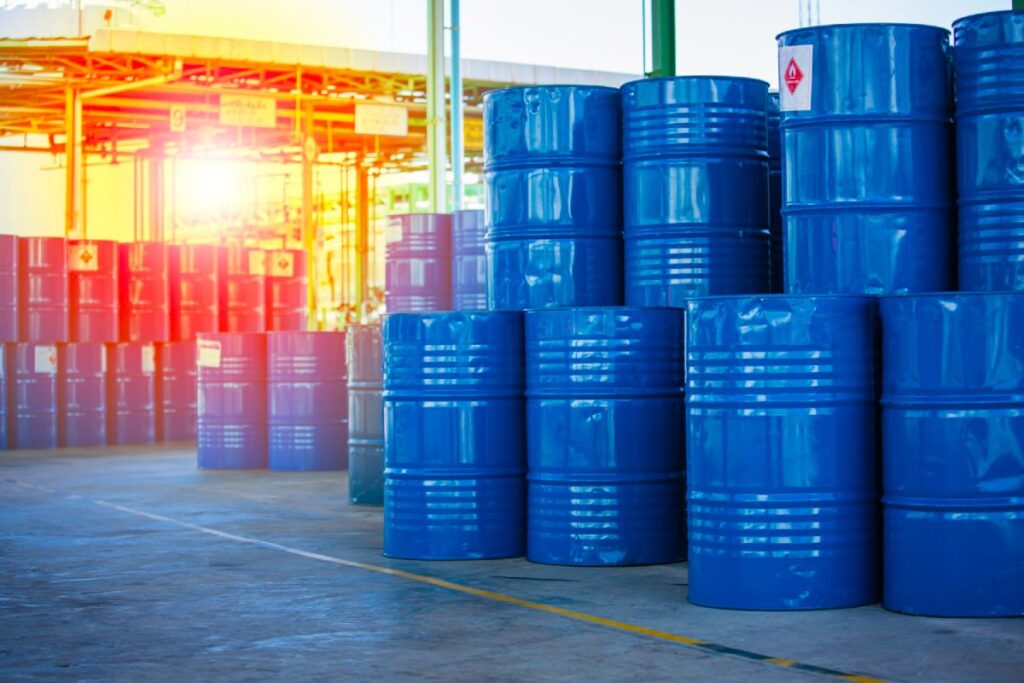
Understanding AdBlue Quality Standards Maintaining high standards in AdBlue Production is crucial for ensuring its effectiveness in reducing emissions. International regulations, including ISO 22241, set strict requirements for urea concentration, purity, and overall composition. Compliance with these standards guarantees that AdBlue functions efficiently in selective catalytic reduction (SCR) systems. Key Ingredients and Purity Control The quality of AdBlue relies heavily on the purity of its raw materials. The urea used must be free of impurities that could damage vehicle engines or emission systems. Deionized water plays a crucial role in ensuring the solution remains stable and effective. Any contaminants can lead to performance issues and increased emissions. Filtration and Contaminant Removal Filtration is a critical step in AdBlue Production to eliminate unwanted particles and residues. Advanced filtration methods help maintain the solution’s integrity and prevent harmful substances from affecting engine components. Ensuring a contaminant-free product reduces the risk of vehicle malfunctions and ensures regulatory compliance. Monitoring Production Conditions Temperature and mixing conditions greatly impact the consistency of AdBlue. Precise control over these factors prevents crystallization and ensures a homogenous solution. Automated monitoring systems help maintain ideal production conditions, reducing errors and ensuring consistency across batches. Quality Testing and Certification Each batch of AdBlue undergoes rigorous testing to verify its compliance with industry standards. Laboratory analyses check for urea concentration, pH balance, and impurity levels. Certified testing ensures that the final product meets required specifications before it is distributed to consumers. Storage and Handling Best Practices Proper storage is essential for maintaining the integrity of AdBlue. It should be kept in sealed, non-reactive containers at controlled temperatures to prevent degradation. Exposure to direct sunlight or extreme temperatures can compromise the solution’s effectiveness. Following correct handling procedures minimizes the risk of contamination. Regulatory Compliance and Market Standards Ensuring that AdBlue Production meets global regulatory standards is key to its widespread adoption. Manufacturers must comply with environmental laws and quality certifications to distribute their products legally. Compliance not only enhances reliability but also boosts consumer trust in the brand. Conclusion Ensuring high-quality AdBlue Production involves strict adherence to purity standards, rigorous testing, and proper handling. By following best practices, manufacturers can guarantee a reliable product that supports emission reduction goals. With increasing environmental regulations, maintaining superior quality in AdBlue will continue to be a priority in the industry. FAQ Why is quality important in AdBlue Production? High-quality AdBlue ensures efficient emission reduction and prevents vehicle system malfunctions. How is AdBlue purity maintained? AdBlue Production follows strict filtration and testing processes to remove contaminants and ensure regulatory compliance. What happens if AdBlue is contaminated? Contaminated AdBlue can damage SCR systems, leading to higher emissions and costly repairs. What storage conditions are required for AdBlue? AdBlue should be stored in temperature-controlled environments to prevent degradation. Does AdBlue expire? Yes, but when stored correctly, it can last up to a year without losing effectiveness. How is AdBlue tested for quality? Laboratory tests measure urea concentration, impurity levels, and pH balance to verify compliance. What are the key regulatory standards for AdBlue? ISO 22241 is the primary standard ensuring AdBlue Production meets industry quality requirements. Can improper AdBlue affect vehicle performance? Yes, low-quality or contaminated AdBlue can cause engine inefficiencies and emission failures. Why is filtration important in AdBlue Production? Filtration removes particles and prevents harmful substances from affecting engine performance. Is AdBlue environmentally safe? Yes, it helps reduce nitrogen oxide emissions, contributing to cleaner air and a healthier environment.
Key Steps in AdBlue Production
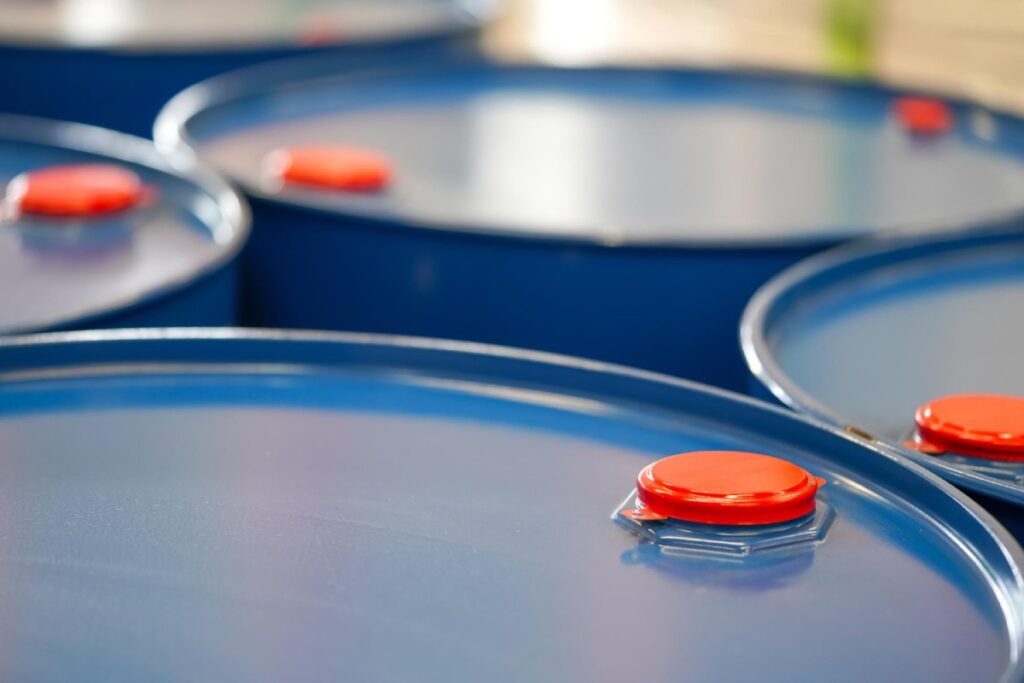
Understanding AdBlue and Its Importance AdBlue Production is essential for reducing harmful emissions in diesel engines. It is a high-purity urea solution that helps break down nitrogen oxides into harmless nitrogen and water vapor. This process significantly contributes to a cleaner environment. The demand for AdBlue continues to grow as emission regulations become stricter worldwide. Raw Materials Required for AdBlue Production The primary ingredient in AdBlue Production is high-purity urea, which is mixed with deionized water. The purity of these raw materials is crucial to ensure that the final product meets stringent quality standards. Any impurities in the ingredients can negatively impact the performance of the selective catalytic reduction (SCR) system. Purification and Filtration Process During AdBlue manufacturing, the solution undergoes multiple purification steps. Filtration removes contaminants and ensures the solution remains free from unwanted particles. This process helps maintain the required ISO 22241 standard, ensuring that the solution is safe for use in modern diesel engines. Mixing and Blending Techniques The mixing process is vital in AdBlue Production to achieve a uniform solution. The urea is carefully dissolved in deionized water under controlled conditions. Temperature and agitation play a crucial role in preventing crystal formation, which can compromise the effectiveness of the final product. Quality Control and Testing Strict quality control measures ensure that every batch of AdBlue meets the necessary specifications. Laboratory testing checks for urea concentration, water purity, and absence of harmful contaminants. Adhering to these standards is essential to ensure that the product remains effective in reducing emissions. Storage and Packaging Considerations Proper storage is crucial in maintaining the quality of AdBlue. The solution must be stored in temperature-controlled environments to prevent degradation. It is also packaged in specialized containers that prevent contamination and maintain the integrity of the solution until it is used in vehicles. Distribution and Regulatory Compliance Before AdBlue reaches the market, it must comply with international regulations. Proper labeling, transportation, and handling practices ensure safety and quality. Compliance with ISO and other regulatory bodies is necessary to guarantee that the product meets industry standards. Conclusion AdBlue Production is a meticulous process that involves precise raw material selection, strict quality control, and adherence to regulatory standards. Each step ensures that the final product is effective in reducing emissions and promoting a cleaner environment. With increasing emission regulations, the demand for high-quality AdBlue will continue to rise, making efficient production techniques more important than ever. FAQ What is AdBlue used for? AdBlue is used in diesel engines to reduce nitrogen oxide emissions and meet environmental regulations. How is AdBlue produced? AdBlue Production involves dissolving high-purity urea in deionized water, followed by purification and quality control testing. What raw materials are required for AdBlue? The key ingredients are high-purity urea and deionized water, both of which must meet strict quality standards. How is AdBlue quality controlled? Each batch undergoes laboratory testing to ensure correct urea concentration and absence of contaminants. Can AdBlue be stored for a long time? Yes, but it must be stored in controlled conditions to prevent degradation and maintain its effectiveness. What happens if AdBlue is contaminated? Contaminated AdBlue can damage the SCR system, leading to engine malfunctions and increased emissions. Is AdBlue environmentally friendly? Yes, it helps reduce nitrogen oxide emissions, contributing to cleaner air and lower environmental impact. How is AdBlue transported? It is transported in specialized containers to prevent contamination and ensure regulatory compliance. Does every diesel vehicle need AdBlue? Only vehicles with a selective catalytic reduction (SCR) system require AdBlue for emission control. How often should AdBlue be refilled? The refill frequency depends on vehicle usage, but regular checks are recommended to avoid engine warnings.
Make Your Own DEF: A Step-by-Step Process Explained

Understanding the Basics of DEF Diesel exhaust fluid (DEF) is a non-toxic solution composed of high-purity urea and deionized water. It is essential for reducing harmful nitrogen oxide emissions in diesel engines equipped with Selective Catalytic Reduction (SCR) systems. Creating DEF requires precision and adherence to ISO standards. Whether you’re managing a fleet or setting up a diesel exhaust fluid manufacturing plant, understanding the composition and function of DEF is the first step toward producing a high-quality product. Why Make Your Own DEF? Producing DEF in-house offers several advantages, including cost savings and control over quality. By establishing a dedicated diesel exhaust fluid manufacturing plant, you can reduce dependency on suppliers and ensure a consistent supply of DEF for your operations. Additionally, making your own DEF allows for customization and scalability, enabling businesses to meet specific needs and adjust production according to demand. Key Materials Needed for DEF Production The primary ingredients for DEF are high-purity urea and deionized water. These components must meet strict quality requirements to ensure the final product adheres to ISO 22241 standards. A reliable source of both materials is critical for efficient production. In a diesel exhaust fluid manufacturing plant, equipment such as mixing tanks and deionized water systems are used to combine these materials with precision. This setup minimizes contamination and maintains product consistency. Essential Equipment for DEF Production Setting up a DEF production system requires specialized equipment. A diesel exhaust fluid manufacturing plant typically includes a urea blending system, deionized water supply, and quality control mechanisms. Advanced monitoring tools ensure the correct concentration of urea in the final product. Investing in high-quality equipment not only improves production efficiency but also ensures the DEF produced meets regulatory standards, protecting diesel engines from potential damage. The Step-by-Step DEF Production Process The DEF production process begins with sourcing and preparing the raw materials. High-purity urea is dissolved in deionized water to create the DEF solution. Precision is crucial during this stage to achieve the required 32.5% urea concentration. In a diesel exhaust fluid manufacturing plant, automated systems handle the mixing and blending process, ensuring consistency and accuracy. After blending, the DEF undergoes testing to confirm compliance with ISO standards before being packaged for use. Quality Assurance in DEF Production Maintaining quality is paramount when producing DEF. Regular testing of urea concentration and water purity ensures the product meets industry standards. Advanced monitoring tools in a diesel exhaust fluid manufacturing plant simplify this process. Consistent quality assurance not only protects the reputation of your business but also prevents potential damage to SCR systems, which can result from using substandard DEF. Packaging and Storage Tips for DEF Proper packaging and storage are essential for preserving the integrity of DEF. Use airtight containers and clearly label them to prevent contamination. A diesel exhaust fluid manufacturing plant often includes automated filling systems to streamline this process. Store DEF in a cool, dry environment away from direct sunlight and extreme temperatures. These precautions prevent the degradation of the solution and maintain its effectiveness. Benefits of In-House DEF Production Making your own DEF provides businesses with cost efficiency, quality control, and flexibility. A well-equipped diesel exhaust fluid manufacturing plant allows for seamless production and ensures a steady supply of high-quality DEF. Additionally, in-house production supports sustainability by reducing transportation-related emissions and waste. This aligns with corporate social responsibility goals and enhances your business’s environmental reputation. Conclusion Producing your own DEF is a strategic investment that offers numerous benefits, from cost savings to environmental sustainability. Setting up a diesel exhaust fluid manufacturing plant ensures precise and reliable production, meeting the needs of modern diesel engines while complying with regulatory standards. By following the steps outlined in this guide, businesses can establish a successful DEF production process and support their operational goals. Frequently Asked Questions What is diesel exhaust fluid (DEF)? DEF is a solution of high-purity urea and deionized water used to reduce nitrogen oxide emissions in diesel engines. Why should I produce DEF in-house? In-house production offers cost savings, quality control, and scalability for businesses managing diesel fleets. What equipment is required to make DEF? You need a blending system, deionized water supply, and quality control tools to set up a diesel exhaust fluid manufacturing plant. How do I ensure the quality of my DEF? Regular testing of urea concentration and water purity ensures the DEF meets ISO 22241 standards. What are the key storage requirements for DEF? Store DEF in a cool, dry place, away from direct sunlight and extreme temperatures, to maintain its integrity. Is DEF production environmentally friendly? Yes, DEF reduces emissions and minimizes transportation-related waste, supporting sustainability goals. Can I scale up my DEF production? Yes, a diesel exhaust fluid manufacturing plant allows for scalable production to meet growing demand.
Diesel Exhaust Fluid Manufacturers: What You Need to Know
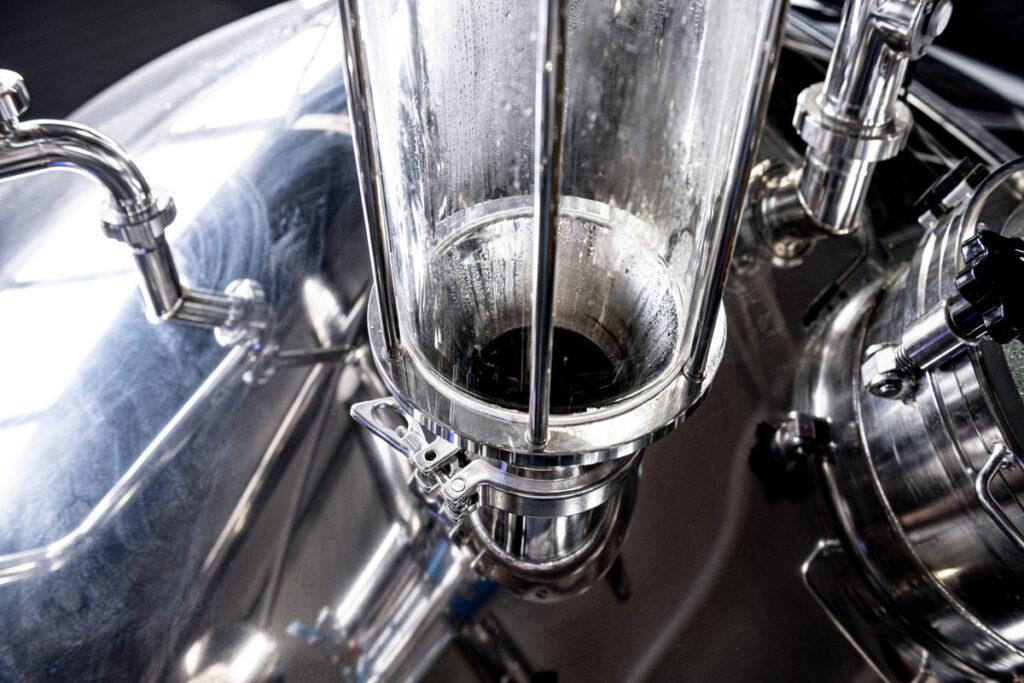
Who Are Diesel Exhaust Fluid Manufacturers? Diesel exhaust fluid manufacturers are companies dedicated to producing DEF, a solution vital for reducing emissions in diesel engines equipped with Selective Catalytic Reduction (SCR) systems. These manufacturers play a crucial role in helping businesses meet stringent environmental regulations. Many of these manufacturers operate a diesel exhaust fluid manufacturing plant, utilizing advanced equipment and processes to ensure the highest quality DEF that adheres to ISO standards. The Role of a Diesel Exhaust Fluid Manufacturing Plant A diesel exhaust fluid manufacturing plant is the backbone of DEF production. It houses specialized equipment, such as mixing tanks and deionized water systems, designed to maintain the purity and consistency of the product. This ensures that the DEF produced meets industry requirements. Manufacturers rely on these facilities to produce large volumes of DEF efficiently. The use of modern technology within these plants allows for precise blending and rigorous quality control, ensuring the product’s reliability. How Manufacturers Ensure Quality Control Maintaining high standards is a priority for diesel exhaust fluid manufacturers. Regular testing of urea concentration and water purity is performed to guarantee compliance with ISO 22241 standards. Advanced monitoring systems within the diesel exhaust fluid manufacturing plant aid in this process. Manufacturers often invest in state-of-the-art equipment to minimize errors and contamination during production. This commitment to quality builds trust with customers and ensures the DEF is safe and effective for use in SCR systems. Environmental Benefits of Diesel Exhaust Fluid One of the primary motivations for diesel exhaust fluid manufacturers is the environmental benefit of their product. DEF significantly reduces nitrogen oxide emissions, a major contributor to air pollution. By producing DEF, manufacturers help industries transition to cleaner practices. The efficiency of a diesel exhaust fluid manufacturing plant further supports sustainability by minimizing waste during production. This aligns with global efforts to reduce environmental impact and promote sustainable development. Key Challenges Faced by Manufacturers While the demand for DEF continues to grow, diesel exhaust fluid manufacturers face several challenges. These include fluctuating raw material costs, compliance with ever-changing regulations, and the need for consistent quality assurance. A well-maintained diesel exhaust fluid manufacturing plant helps mitigate these issues. Additionally, competition in the industry necessitates constant innovation and efficiency improvements. Manufacturers that invest in advanced technology and sustainable practices are better positioned to overcome these challenges. The Growing Market for Diesel Exhaust Fluid The market for DEF is expanding rapidly due to increased adoption of SCR systems in diesel vehicles and stricter emission standards. Diesel exhaust fluid manufacturers are capitalizing on this growth by scaling up production and diversifying their product offerings. Operating a well-equipped diesel exhaust fluid manufacturing plant enables manufacturers to meet the rising demand while maintaining high-quality standards. This growth provides opportunities for both established players and new entrants in the market. Partnerships with Logistics and Fleet Companies Diesel exhaust fluid manufacturers often collaborate with logistics and fleet management companies to provide bulk DEF solutions. These partnerships ensure a consistent supply of DEF to industries that rely heavily on diesel-powered vehicles. By utilizing a diesel exhaust fluid manufacturing plant, manufacturers can customize production to meet the specific needs of their clients. This adaptability strengthens business relationships and enhances customer satisfaction. Future Trends in Diesel Exhaust Fluid Manufacturing The future of diesel exhaust fluid manufacturers lies in technological advancements and sustainability. Innovations in production processes and the integration of renewable energy sources in diesel exhaust fluid manufacturing plants are expected to shape the industry. As emission regulations continue to tighten, the demand for DEF will only grow. Manufacturers that prioritize efficiency, quality, and sustainability will lead the way in this evolving market. Conclusion Diesel exhaust fluid manufacturers play a pivotal role in reducing emissions and supporting global sustainability efforts. Operating a state-of-the-art diesel exhaust fluid manufacturing plant enables these companies to meet market demands efficiently while maintaining the highest quality standards. By addressing challenges and embracing innovation, manufacturers are poised to thrive in a growing and competitive industry. Frequently Asked Questions What is a diesel exhaust fluid manufacturing plant? A facility that produces DEF by blending deionized water and high-purity urea to meet industry standards. Why is DEF important for diesel engines? DEF reduces harmful nitrogen oxide emissions, ensuring compliance with environmental regulations. How do manufacturers ensure DEF quality? Manufacturers perform regular testing and use advanced equipment to maintain ISO-compliant standards. What challenges do diesel exhaust fluid manufacturers face? Challenges include raw material costs, regulatory compliance, and maintaining consistent quality. How does a manufacturing plant support sustainability? Modern plants minimize waste and use efficient processes, aligning with sustainability goals. Is the demand for DEF expected to grow? Yes, the market is expanding due to stricter emission regulations and increased SCR adoption. What role do partnerships play in DEF distribution? Manufacturers collaborate with logistics companies to ensure a steady supply of DEF to end-users. How do manufacturers address rising production costs? Investing in efficient technology and optimizing production processes helps control costs.
Diesel Exhaust Fluid Manufacturing Plant: A Comprehensive Guide
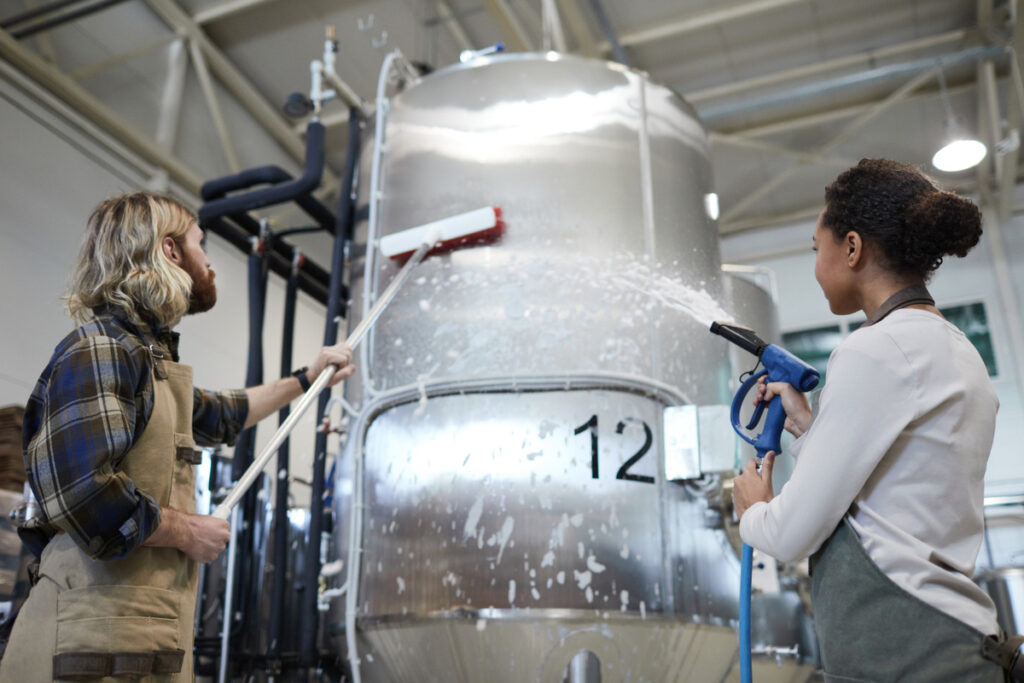
What is a Diesel Exhaust Fluid Manufacturing Plant? A diesel exhaust fluid manufacturing plant is a facility designed to produce DEF, a critical fluid for diesel engines with Selective Catalytic Reduction (SCR) systems. DEF is made by blending high-purity urea with deionized water to reduce harmful nitrogen oxide emissions from diesel vehicles. Such plants require specialized equipment, such as a diesel exhaust fluid making machine, to ensure the production process adheres to strict quality standards. These facilities are essential for meeting environmental regulations and supporting cleaner transportation. Key Components of a DEF Manufacturing Plant A diesel exhaust fluid manufacturing plant comprises various components, including mixing tanks, deionized water systems, and quality control mechanisms. The most critical equipment is the diesel exhaust fluid making machine, which ensures precise blending and consistency in the final product. Additionally, these plants often feature storage tanks, automated packaging systems, and testing labs to maintain quality assurance. Proper facility layout and infrastructure are vital for seamless production operations. The Importance of a Diesel Exhaust Fluid Making Machine The diesel exhaust fluid making machine is at the heart of any DEF manufacturing plant. This machine automates the blending of urea and deionized water, ensuring the mixture meets ISO 22241 standards. Its advanced sensors and controls guarantee accurate production and reduce the risk of contamination. Investing in a high-quality diesel exhaust fluid making machine not only improves efficiency but also minimizes operational costs. It is a crucial element for businesses aiming to produce DEF at scale. Setting Up a Diesel Exhaust Fluid Manufacturing Plant Establishing a diesel exhaust fluid manufacturing plant involves several steps, starting with selecting the right location. The site should have ample space for machinery, storage tanks, and packaging operations. Additionally, the facility must comply with local environmental and industrial regulations. Once the site is prepared, the installation of a diesel exhaust fluid making machine and other essential equipment is the next step. Professional installation and initial testing are crucial to ensure the plant operates smoothly from the start. Quality Control in DEF Production Maintaining quality control is essential in a diesel exhaust fluid manufacturing plant. DEF must meet stringent purity standards to be effective and safe for SCR systems. Regular testing of urea concentration and water purity is critical to ensure compliance with ISO 22241. Using a diesel exhaust fluid making machine equipped with advanced monitoring systems simplifies quality assurance. Automated checks during production reduce errors and enhance product reliability. Environmental Benefits of DEF Manufacturing Producing DEF in a dedicated diesel exhaust fluid manufacturing plant contributes to environmental sustainability. DEF reduces nitrogen oxide emissions, helping diesel engines comply with emission regulations. This aligns with global efforts to combat air pollution and climate change. Additionally, modern diesel exhaust fluid making machines are designed to minimize waste during production. This efficiency further supports environmentally conscious business practices. Scalability of DEF Manufacturing One of the advantages of a diesel exhaust fluid manufacturing plant is its scalability. Businesses can start with a small production setup and expand as demand increases. Choosing modular equipment, such as a scalable diesel exhaust fluid making machine, simplifies this process. Scaling production ensures businesses remain competitive and meet the growing demand for DEF in industries such as transportation, agriculture, and logistics. Maintenance and Operational Best Practices Regular maintenance is critical for the smooth operation of a diesel exhaust fluid manufacturing plant. This includes routine cleaning, equipment calibration, and timely replacement of worn-out parts. A well-maintained facility ensures consistent production quality. Additionally, training staff to operate and troubleshoot the diesel exhaust fluid making machine minimizes downtime and enhances efficiency. Adopting best practices ensures long-term operational success and profitability. Conclusion Setting up a diesel exhaust fluid manufacturing plant is a strategic investment for businesses aiming to meet environmental regulations and capitalize on the growing demand for DEF. With the right diesel exhaust fluid making machine, companies can achieve efficient, scalable, and sustainable production. Maintaining quality control, adhering to best practices, and planning for scalability are essential for success in this industry. Frequently Asked Questions What is the purpose of a diesel exhaust fluid manufacturing plant? It produces DEF, a critical fluid for reducing nitrogen oxide emissions in diesel engines. Why is a diesel exhaust fluid making machine essential? The machine automates the blending process, ensuring precise and consistent DEF production. What are the key components of a DEF manufacturing plant? Mixing tanks, storage facilities, deionized water systems, and quality control equipment are essential components. How does DEF production benefit the environment? DEF reduces harmful emissions, supporting cleaner air and compliance with environmental regulations. Is it possible to scale a DEF manufacturing plant? Yes, modular equipment allows businesses to expand production capacity as demand grows. What maintenance is required for a DEF manufacturing plant? Regular cleaning, calibration, and part replacement ensure consistent operation and quality. How does quality control work in DEF production? Advanced monitoring systems in the equipment test urea concentration and water purity to meet ISO standards. Can DEF be produced sustainably? Yes, modern production techniques minimize waste and align with environmental sustainability goals.
Top Benefits of a Diesel Exhaust Fluid Plant for Businesses
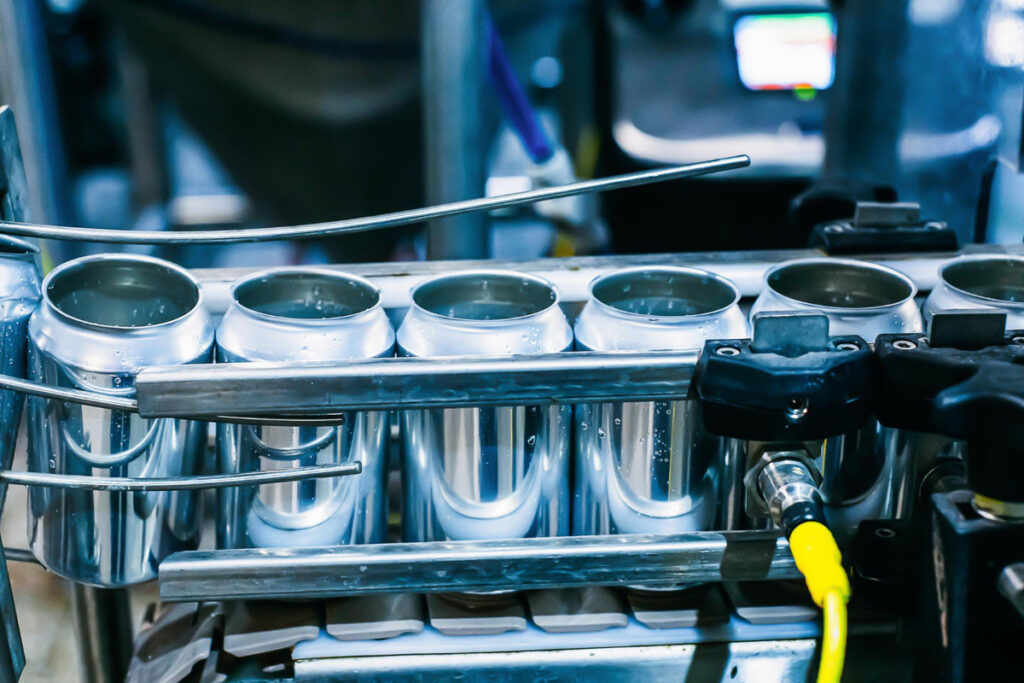
What Is a Diesel Exhaust Fluid Plant? A diesel exhaust fluid plant is a facility designed to produce DEF, an essential solution for reducing harmful emissions from diesel engines. DEF is a mixture of deionized water and high-purity urea, used in vehicles with Selective Catalytic Reduction (SCR) systems. Establishing such a plant enables businesses to produce high-quality DEF to meet market demands. By investing in a diesel exhaust fluid plant, businesses can gain control over production quality, optimize costs, and contribute to environmental sustainability. These facilities are particularly beneficial for companies managing fleets or operating in industries reliant on diesel engines. Cost Savings Through In-House Production One of the significant advantages of setting up a diesel exhaust fluid plant is the potential for cost savings. Purchasing DEF in bulk from external suppliers can be expensive, especially when transportation and storage costs are factored in. Producing DEF in-house allows businesses to save on these costs while maintaining a consistent supply. Additionally, utilizing a high-quality diesel exhaust fluid making machine ensures efficient production processes, further reducing operational expenses. This cost-effective approach enables businesses to allocate resources to other critical areas. Enhanced Control Over Quality Owning a diesel exhaust fluid plant provides businesses with greater control over the quality of their DEF. Commercial DEF must adhere to strict ISO 22241 standards to ensure it is safe and effective for use in SCR systems. Producing DEF internally enables businesses to implement stringent quality control measures. A reliable diesel exhaust fluid making machine equipped with advanced monitoring systems ensures that the DEF produced meets or exceeds industry standards. This control over quality enhances customer trust and brand reputation. Meeting Growing Market Demands The demand for DEF continues to grow as more industries adopt sustainable practices and regulatory requirements become stricter. Setting up a diesel exhaust fluid plant positions businesses to capitalize on this expanding market. By producing DEF in-house, companies can ensure a steady supply to meet customer needs. Using an efficient diesel exhaust fluid making machine, businesses can scale production to match market trends. This scalability is essential for staying competitive and maintaining market relevance. Environmental Sustainability A diesel exhaust fluid plant plays a crucial role in supporting environmental sustainability. DEF reduces nitrogen oxide emissions, contributing to cleaner air and compliance with environmental regulations. By producing DEF, businesses actively participate in reducing their carbon footprint. Investing in a high-quality diesel exhaust fluid making machine ensures efficient production with minimal waste. This environmentally conscious approach aligns with corporate social responsibility goals and enhances a company’s image as a sustainable business. Flexibility in Production Operating a diesel exhaust fluid plant provides businesses with the flexibility to customize production based on specific needs. This adaptability is particularly valuable for companies with diverse fleets or varying operational requirements. A modern diesel exhaust fluid making machine allows for easy adjustments in production capacity and composition. This flexibility ensures that businesses can meet the unique demands of their operations efficiently. Opportunities for Business Expansion Establishing a diesel exhaust fluid plant opens new opportunities for business expansion. Companies can produce DEF not only for their use but also for sale to other businesses or retail customers. This additional revenue stream can significantly enhance profitability. Using a scalable diesel exhaust fluid making machine, businesses can increase production capacity as demand grows. This scalability supports market diversification and long-term growth strategies. Reduced Dependence on Suppliers Relying on external suppliers for DEF can lead to supply chain disruptions and increased costs. A diesel exhaust fluid plant eliminates this dependence by enabling businesses to produce DEF internally. This self-reliance ensures consistent availability and predictable pricing. With a reliable diesel exhaust fluid making machine, businesses can avoid delays and maintain operational efficiency. This independence strengthens resilience against market fluctuations and supplier issues. Conclusion Investing in a diesel exhaust fluid plant offers numerous benefits for businesses, including cost savings, quality control, and environmental sustainability. A high-quality diesel exhaust fluid making machine ensures efficient and reliable production, helping businesses stay competitive in a growing market. By embracing in-house DEF production, companies can enhance operational efficiency, reduce costs, and contribute to a cleaner environment. Frequently Asked Questions What is a diesel exhaust fluid plant? A diesel exhaust fluid plant is a facility designed to produce DEF by blending deionized water and high-purity urea. Why should businesses invest in a diesel exhaust fluid making machine? A diesel exhaust fluid making machine enables efficient production, cost savings, and better quality control. What are the environmental benefits of DEF production? DEF reduces harmful nitrogen oxide emissions, contributing to cleaner air and compliance with environmental regulations. How does a diesel exhaust fluid plant support scalability? A plant equipped with scalable machinery allows businesses to increase production as market demands grow. What is the role of quality control in DEF production? Quality control ensures DEF meets ISO standards, making it safe and effective for use in diesel engines with SCR systems. Can DEF production reduce operational costs? Yes, producing DEF in-house eliminates transportation and supplier costs, resulting in significant savings. What is the importance of deionized water in DEF production? Deionized water is essential for maintaining DEF purity and preventing damage to diesel engine systems. Is DEF production a sustainable business practice? Yes, DEF production reduces emissions and aligns with corporate social responsibility goals for sustainability.
How to Set Up Your Diesel Exhaust Fluid Making Machine

Understanding the Basics of Diesel Exhaust Fluid Diesel exhaust fluid (DEF) is a crucial component for modern diesel engines, ensuring they meet stringent emission standards. It is composed of high-purity urea and deionized water, making it an environmentally friendly solution for reducing harmful nitrogen oxide emissions. Setting up a DEF production facility requires careful planning and the right diesel exhaust fluid making machine to ensure consistent quality. Understanding the role and chemistry of DEF helps in determining the type of equipment needed. The DEF-making process is straightforward, but precise control over urea concentration and water quality is essential to produce a product that meets ISO 22241 standards. Choosing the Right Diesel Exhaust Fluid Making Machine Selecting the appropriate diesel exhaust fluid making machine is a critical step in establishing your DEF production line. Machines vary in capacity, automation level, and quality assurance features. A high-quality machine ensures that the final product complies with regulatory standards and customer expectations. When evaluating a DEF-making machine, look for features such as automated blending systems, integrated quality control mechanisms, and scalability. These features can streamline production and minimize errors, saving both time and resources in the long run. Preparing Your Facility for DEF Production Before installing your diesel exhaust fluid making machine, it is essential to prepare your facility. This includes ensuring adequate space for machinery, storage tanks, and packaging areas. A clean and controlled environment is critical to maintain the purity of the DEF. Invest in deionized water systems and secure a reliable source of high-purity urea. Proper ventilation and safety measures should also be in place to protect workers and maintain compliance with industrial regulations. Setting Up the Diesel Exhaust Fluid Making Machine Installing a diesel exhaust fluid making machine involves several technical steps. Begin by carefully unpacking and assembling the equipment according to the manufacturer’s instructions. Ensure all connections, including water and power supplies, are correctly configured. Once the machine is set up, conduct initial testing to verify its functionality. Calibration of sensors and quality control mechanisms is crucial to producing DEF that adheres to the required specifications. Testing and Quality Assurance Quality assurance is a cornerstone of successful DEF production. Utilize the built-in testing features of your diesel exhaust fluid making machine to monitor key parameters, such as urea concentration and water purity. Regular testing ensures the DEF meets ISO standards. Additionally, maintain detailed production records and conduct periodic laboratory tests to validate the machine’s performance. A robust quality assurance process builds trust with customers and regulatory bodies. Packaging and Storage Considerations After producing high-quality DEF, proper packaging and storage are vital to preserve its integrity. Invest in airtight containers and clearly label them to comply with regulatory requirements. Your diesel exhaust fluid making machine may include automated filling systems to streamline this process. Storage conditions should be cool and dry to prevent contamination or degradation. Avoid exposure to direct sunlight and extreme temperatures, which can compromise the DEF’s quality. Scaling Up Production Once you’ve established a successful DEF production process, scaling up may become necessary to meet increased demand. Choose a diesel exhaust fluid making machine with modular design and scalability features to facilitate expansion. Analyze market trends and customer needs to determine the optimal production capacity. Investing in additional equipment or upgrading existing machinery can help sustain growth while maintaining product quality. Maintaining Your Diesel Exhaust Fluid Making Machine Regular maintenance of your diesel exhaust fluid making machine is essential to ensure long-term performance and reliability. Follow the manufacturer’s guidelines for cleaning, lubrication, and part replacement schedules. Preventative maintenance minimizes downtime and avoids costly repairs. Keep spare parts on hand and train staff to identify potential issues early. A well-maintained machine not only boosts production efficiency but also extends its operational life. Conclusion Setting up a diesel exhaust fluid making machine requires careful planning, attention to quality assurance, and adherence to regulatory standards. By investing in the right equipment and maintaining rigorous production processes, you can create a reliable and scalable DEF production line. Proper maintenance and scalability considerations will help your business thrive in the growing DEF market. Frequently Asked Questions What is a diesel exhaust fluid making machine? A diesel exhaust fluid making machine is specialized equipment used to produce DEF by blending high-purity urea with deionized water. Why is quality control important in DEF production? Quality control ensures that the DEF meets ISO standards, preventing damage to vehicles and maintaining regulatory compliance. How do I maintain a diesel exhaust fluid making machine? Regular cleaning, lubrication, and part replacement according to the manufacturer’s guidelines are key to proper maintenance. Can I scale up my DEF production easily? Yes, many machines are designed with scalability in mind, allowing you to expand production as needed. What materials are required for DEF production? High-purity urea and deionized water are the primary materials needed to produce DEF. Is DEF production cost-effective? Yes, producing your own DEF can reduce costs compared to purchasing it in bulk, especially for large-scale operations. What storage conditions are ideal for DEF? DEF should be stored in a cool, dry place away from direct sunlight and extreme temperatures to maintain its quality. Can I use any water for DEF production? No, only deionized water should be used to ensure the purity and effectiveness of the DEF. What are the benefits of automated DEF production? Automation improves efficiency, reduces human error, and ensures consistent product quality. How do I ensure my DEF complies with ISO standards? Regular testing and monitoring of urea concentration and water purity during production ensure compliance with ISO 22241.
